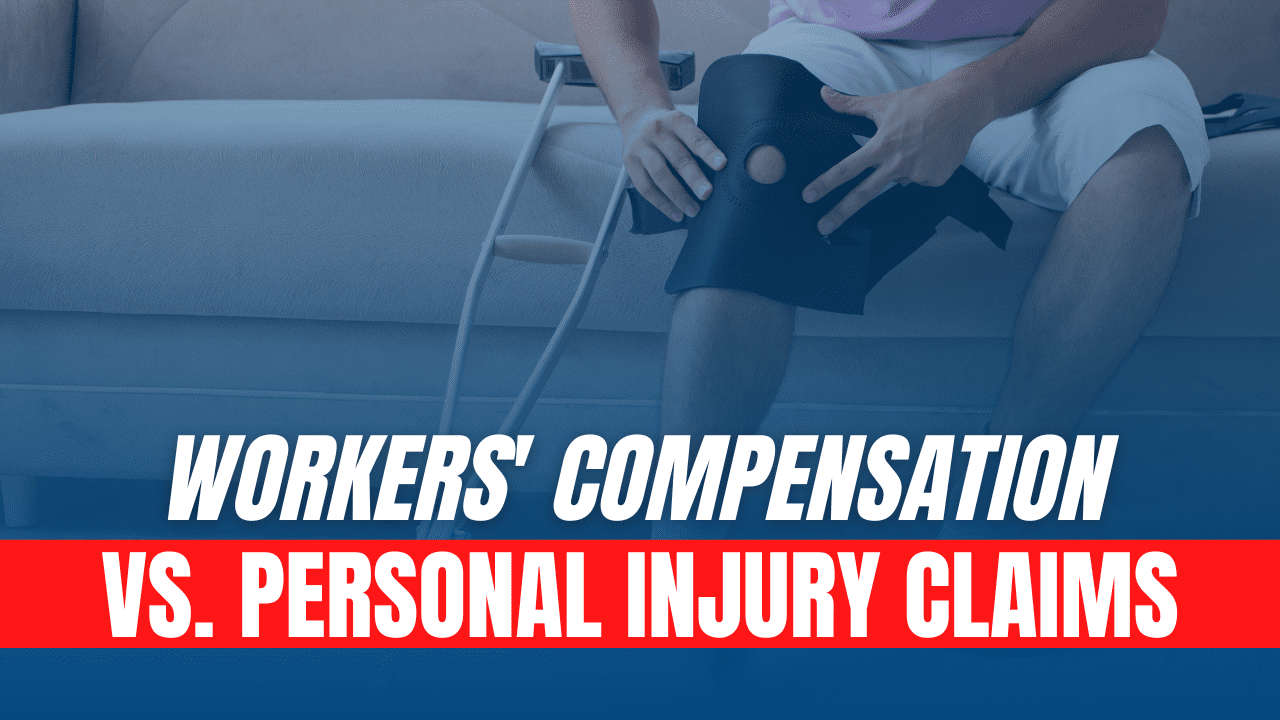In 2024, the Occupational Safety and Health Administration (OSHA) investigated 826 worker deaths, an 11% reduction from 928 in the previous year. In the construction industry, falls, slips, and trips continue to be the leading cause of fatalities, accounting for 38.4% of all construction deaths.
Getting hurt at work or in an accident is difficult. Beyond the physical pain, you might be unsure about how to get help with medical bills, lost wages, and other expenses. Two common ways people seek compensation are through workers’ compensation and personal injury claims.
Knowing the difference between workers’ comp and personal injury claims will allow you to weigh the specific benefits and requirements of each of them. Let’s look at some important things that might affect your decision in deciding whether to pursue a personal injury or workers’ compensation claim.
Understanding Workers’ Compensation
When an injury occurs during work, workers’ compensation stands as financial aid so you can focus on healing. It pays benefits to the injured employees and covers medical treatment expenses and partial wages.
There is no need to prove negligence. You only have to prove that the injury arose out of the course of employment. You can study your state’s laws, as eligibility and amounts received vary. A claim process commonly requires notifying your employer and submitting relevant documentation to support your claim.
Note that you must meet deadlines for reporting the injury and filing the claim to be entitled to your rights and benefits. Knowing these things could really ease your recovery.
The Personal Injury Lawsuit Process
Understanding accountability and how to receive appropriate compensation can significantly impact your case. Get medical records and witness statements and hire a personal injury lawyer to evaluate the case and recommend a plan of action.
After the lawyer accepts the case, he or she will institute a formal complaint in court stating the allegations and damages. The defendant will then answer, and discovery may follow, during which the parties exchange relevant information.
Construction accident lawyer Mary English Lloyd says that in construction accidents, if a third party such as a subcontractor caused your work injury, you may have a personal injury claim on top of your workers’ comp claim. Your attorney can evaluate your case and determine your legal options.
Should no settlement be agreed upon, the case is set for trial, where a judge or jury will issue the final verdict. Keep the communication lines open with your attorney throughout all this.
Key Differences Between Workers’ Compensation and Personal Injury Claims
As mentioned, you don’t need to prove someone else’s fault to receive benefits from workers’ compensation claims. Workers’ compensation pays your medical expenses and possibly a portion of your wages while you are under disability or unable to work.
Personal injury cases, on the other hand, seek to establish the negligence of an individual or an organization in causing the injuries that you have sustained. Usually, these sorts of claims yield the larger sums of money, which comprise the compensation for pain and suffering.
There is a time factor to consider: filing a workers’ comp claim is usually quicker, whereas personal injury cases often experience delays due to legal technicalities.
Read Also: Medical Bills After an Accident? How an Anchorage Attorney Can Help Claims
Eligibility Requirements for Each Option
Eligibility rules for both workers’ compensation and personal injury differ.
In workers’ compensation, an individual must be employed, and death or injury must be sustained in the course of employment. Usually, the system pays medical expenses and some benefits for loss of wages without regard to fault.
In personal injury claims, you have to demonstrate that the other party’s negligence resulted in your injuries. A third party can also be held liable, especially in the case of an automobile collision or a slip and fall.
Unlike workers’ compensation, personal injury cases can only claim damages after establishing liability for the party in question.
How to Decide Which Path to Take
How do you choose a path? Determine the kind of injury you suffered. If the injury occurred on the job, workers’ compensation may be the best alternative because it covers medical care and wage replacement regardless of responsibility.
If the injury occurred due to an act of negligence on the third party’s part, then maybe a personal injury lawsuit is appropriate since it may compensate for pain and suffering and any other damages not covered under workers’ comp.
An attorney can help you weigh the pros and cons of each option and choose the best one for your case.
You May Also Like: How Many Times You Can Appeal a Case in Court











